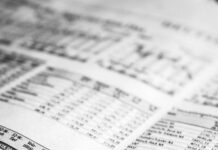In today’s fast-paced financial world, What Is the Role of Regulations in Forex? is a question that every trader, whether newbie or expert, desperately wants to understand. Forex trading, known for its immense potential and high volatility, operates in a complex landscape where forex regulations play a pivotal role in shaping market dynamics. But why exactly are these forex trading regulations so crucial, and how do they impact your trading journey? If you’ve ever wondered about the hidden forces behind secure and transparent forex markets, you’re about to uncover some eye-opening insights!
Understanding the importance of forex regulations is not just for compliance geeks or financial insiders; it’s key to protecting your investments and navigating risks effectively. Without strict rules and oversight by authoritative bodies, the forex market could become a breeding ground for scams, fraud, and unfair practices. So, what makes these forex regulatory bodies like the FCA, NFA, or ASIC so powerful? And how do they enforce rules that ensure a level playing field for traders worldwide? This article dives deep into the critical role of forex regulation, unveiling how these frameworks safeguard traders, promote transparency, and enhance market stability.
Are you ready to discover the secrets behind regulated forex brokers, the impact of compliance on trading strategies, and why staying informed about the latest forex regulatory updates could be your ultimate trading advantage? Keep reading to explore the essential aspects of forex regulation that every trader must know in 2024 and beyond. Don’t miss out on mastering the regulatory landscape that could make or break your forex trading success!
How Do Forex Regulations Protect Traders? Uncover 5 Critical Benefits You Need to Know
Forex trading has become one of the most dynamic financial markets in the world, attracting millions of traders daily. But with so much money changing hands every second, the question arises: how do forex regulations protect traders? The forex market, unlike stock exchanges or futures markets, is decentralized and operates 24/7, which makes regulation both crucial and complex. This article uncover 5 critical benefits of forex regulations that every trader should know, while explore the overall role that regulations play in this vast marketplace.
What Is the Role of Regulations in Forex?
At its core, forex regulations exist to create order in a market that can be chaotic and risky. They help to enforce rules, maintain transparency, and ensure that brokers and platforms act in fair manners. Without regulation, traders would be vulnerable to scams, frauds, and unfair practices. Forex regulations are made by governmental agencies or independent bodies like the Commodity Futures Trading Commission (CFTC) in the US, the Financial Conduct Authority (FCA) in the UK, or the Australian Securities and Investments Commission (ASIC).
Historically, the forex market was less regulated in its early years. As the market grew exponentially, so did the incidents of fraud and unfair practices. This pushed authorities to step in and create frameworks to protect the investors. Regulations also help standardize how forex brokers operate, which makes it easier for traders to compare services and choose reliable platforms.
5 Critical Benefits Forex Regulations Provide to Traders
Protection Against Fraudulent Brokers
Regulations require brokers to be registered and maintain certain standards. This means that before a broker can offer services to the public, they must prove their legitimacy. Without this, many scammers would easily take advantage of unsuspecting traders. For example, regulated brokers must keep clients’ funds in segregated accounts, meaning your money is separated from the broker’s operating capital. This limits risk if the broker goes bankrupt.Transparency and Fair Pricing
Regulated brokers are obligated to provide transparent pricing and maintain fair trading practices. This includes disclosing spreads, commissions, and any fees associated with trades. Traders will not find hidden charges or manipulated price feeds which can happen on unregulated platforms. Transparency also extends to timely execution of trades, reducing slippage and manipulation.Ensuring Leverage Limits and Risk Management
Forex trading is highly leveraged, allowing traders to control large positions with small amounts of capital. This could be a double-edged sword, leading to massive losses. Regulatory bodies set limits on leverage to protect retail traders from excessive risk. For example, in the US, leverage is capped at 50:1 for major currency pairs. These rules help manage risks and prevent traders from losing more money than they can afford.Dispute Resolution and Legal Recourse
When problems arise, having a regulatory body backing traders provides a path for complaint and resolution. If a broker acts unfairly or violates regulations, traders can file complaints to the regulator. These agencies often have processes to mediate disputes, and in some cases, they can impose fines or sanctions on brokers. This is an important safety net that does not exist in unregulated markets.Protection From Market Manipulation and Insider Trading
Forex regulations are designed also to curb market abuses, including insider trading and price manipulation. Regulators monitor broker activities and trade volumes to detect suspicious behaviors. This protects the integrity of the market and ensures that all participants operate on a level playing field. Such safeguards help maintain investor confidence which is vital for the market health.
Practical Examples of Forex Regulations in Action
To better understand how these benefits work, consider a few real-world scenarios:
- A trader deposits funds with a broker that suddenly disappears. If the broker is regulated, the trader’s funds are usually protected by client money rules, and the regulator may intervene to recover the funds.
- During volatile market events, a trader notices unusual price spikes. A regulated broker is required to provide explanations and transparent reports about market conditions, while an unregulated broker might simply refuse withdrawals or manipulate prices.
- When a trader suspects unfair execution or hidden fees, reporting to the regulatory authority can lead to investigations and, sometimes, compensation.
Comparing Regulated vs. Unregulated Forex Brokers
| Aspect | Regulated Brokers | Unregulated Brokers |
|---|---|---|
| Licensing | Must have official license | No official license |
| Fund Protection | Segregated client accounts | Funds mixed with company funds |
| Transparency | Clear pricing, fees disclosed | Hidden charges common |
| Legal Recourse | Possible through regulators | Limited or no recourse |
| Leverage Limits | Set by regulatory bodies | Often extremely high or unlimited |
| Market Integrity | Monitored for manipulation | Higher risk of fraud |
This simple comparison shows why choosing a regulated broker is not just a preference but a necessity for
Top Forex Regulatory Bodies in 2024: Which Ones Guarantee Safe and Transparent Trading?
In the fast-paced world of forex trading, knowing which regulatory bodies to trust becomes crucial, especially in 2024 where the market keeps evolving rapidly. Traders from New York and around the globe always look for safe and transparent trading environments, but with so many organizations claiming to protect investors, it gets confusing what really works. Forex regulations aren’t just red tape; they play a vital role in making sure the trading landscape isn’t a wild west. But what exactly do these regulations do, and which ones stand out this year? Let’s dive deep into the top forex regulatory bodies in 2024 and explore why regulation matters so much.
What Is the Role of Regulations in Forex? Unveiling Key Insights
Regulations in forex market is designed to protect traders from fraud, manipulation, and unfair practices. But that’s just the surface. Regulations also ensure brokers follow certain standards, like maintaining sufficient capital, providing transparent pricing, and segregating clients’ funds from operational accounts. Without these rules, it would be very easy for unscrupulous brokers to disappear with clients’ money or manipulate prices.
Many new traders don’t realize that forex is a decentralized market, meaning there’s no single exchange that governs trading. This decentralization is why regulators are important; they act as watchdogs in their respective jurisdictions. For example, in the USA, the Commodity Futures Trading Commission (CFTC) and the National Futures Association (NFA) regulate forex brokers and enforce strict compliance measures. Elsewhere, organizations like the Financial Conduct Authority (FCA) in the UK or the Australian Securities and Investments Commission (ASIC) play similar roles.
Some key roles of forex regulations:
- Protecting traders from scams and fraud.
- Enforcing transparency in pricing and order execution.
- Ensuring brokers maintain adequate capital reserves.
- Monitoring brokers’ financial health regularly.
- Providing mechanisms for dispute resolution.
- Promoting fair market practices and ethical behavior.
Without these regulations, the forex market would be vulnerable to manipulation, making it risky for everyday traders to participate confidently.
Top Forex Regulatory Bodies in 2024: Which Ones Guarantee Safe and Transparent Trading?
In 2024, several regulatory bodies continue to dominate the forex landscape with robust frameworks that traders trust. Here’s a breakdown of the most important ones, what they regulate, and why they are considered reliable.
Commodity Futures Trading Commission (CFTC) – USA
- Regulates: Forex and futures markets in the United States.
- What it does: Enforces strict capital requirements, monitors brokers’ activities closely, and mandates transparent disclosures.
- Why trust: The CFTC has one of the most stringent regulatory environments globally. Brokers must register and comply with rules or face heavy penalties.
- Limitations: High compliance costs mean fewer brokers operate in the US, reducing choices but increasing safety.
National Futures Association (NFA) – USA
- Regulates: Brokers and firms involved in futures and forex trading.
- Role: Works closely with CFTC to enforce ethical conduct, handle complaints, and audit member firms.
- Trust factor: NFA membership is a sign brokers are vetted and subject to periodic inspections.
- Practical example: If a trader has dispute with an NFA member broker, they can file complaints that the NFA investigates formally.
Financial Conduct Authority (FCA) – UK
- Regulates: Financial services including forex brokers operating in the UK.
- What it enforces: Capital adequacy, client fund protection, anti-money laundering (AML) rules.
- Known for: FCA’s rigorous approach to transparency and investor protection.
- Unique feature: FCA requires brokers to provide negative balance protection, meaning traders can’t lose more than their deposited funds.
Australian Securities and Investments Commission (ASIC) – Australia
- Oversees: Forex brokers and financial services in Australia.
- Regulation highlights: ASIC requires brokers to adhere to strict conduct codes and maintain high operational standards.
- Reputation: ASIC was once considered top-tier but has faced criticism for relaxed rules recently; however, many brokers still strive to meet ASIC standards.
- Practical note: ASIC regulated brokers often offer innovative trading platforms and tools.
Cyprus Securities and Exchange Commission (CySEC) – Cyprus
- Supervises: Brokers operating in the European Union through Cyprus.
- Role: Implements EU’s MiFID regulations, focusing on investor protection and market transparency.
- Strength: CySEC-regulated brokers must provide clear disclosures and follow strict capital requirements.
- Why it matters: Many global brokers choose CySEC licensing to access European markets.
Comparison Table of Top Forex Regulatory Bodies in 2024
| Regulatory Body | Jurisdiction | Key Features | Trader Protection Level | Known For |
|---|---|---|---|---|
| CFTC | USA | Strict capital rules, transparency |
Why Are Forex Regulations Essential for Market Stability? Exploring Key Rules and Their Impact
Why Are Forex Regulations Essential for Market Stability? Exploring Key Rules and Their Impact, What Is the Role of Regulations in Forex? Unveiling Key Insights, What Is the Role of Regulations in Forex?
The foreign exchange market, often called Forex or FX, is the largest financial market in the world. It operates 24 hours a day, five days a week, with trillions of dollars exchanged daily. But the question many ask, why are forex regulations essential for market stability? Without some sort of oversight, the market can become chaotic, leading to unfair practices, fraud, and extreme volatility. Regulations play crucial role in keeping the market orderly, protecting traders, and ensuring confidence in the system.
What Is Forex Regulation?
Forex regulations refer to the laws, rules, and guidelines established by governmental bodies or financial authorities to supervise forex brokers, dealers, and other market participants. These rules exist to make sure that trading practices are transparent, fair, and secure. Forex regulation differs from country to country but the core goal remains same worldwide — protect investors and maintain market integrity.
Historically, the forex market was less regulated, especially in the early days before internet trading became popular. This lack of oversight allowed some brokers to run scams or manipulate prices to their advantage. After major financial crises and scandals, many countries tightened their rules and created regulatory agencies to oversee forex activities.
Why Forex Regulations Matter for Market Stability
Regulations bring order where otherwise would be chaos. Without rules, any broker could operate without accountability. This would increase risk for traders and reduce trust in the market. Some key reasons why forex regulations are essential include:
- Investor Protection: Regulations require brokers to segregate client funds from their own money, reducing risk of loss if the broker fails.
- Transparency: Rules enforce disclosure of trading risks, fees, and business practices so traders can make informed decisions.
- Fair Trading Environment: Prevent market manipulation, insider trading, and fraudulent activities that can distort prices.
- Reduce Systemic Risk: By imposing capital adequacy requirements on brokers, regulations ensure firms can withstand financial shocks.
- Dispute Resolution: Regulated brokers usually offer recourse mechanisms for traders to resolve conflicts fairly.
- Prevent Money Laundering: Forex regulations often include strict anti-money laundering (AML) measures to stop illicit financial flows.
Key Regulatory Bodies Around the World
Different countries have their own agencies that regulate forex trading. Some of the most influential include:
- Commodity Futures Trading Commission (CFTC) and National Futures Association (NFA) — United States
- Financial Conduct Authority (FCA) — United Kingdom
- Australian Securities and Investments Commission (ASIC) — Australia
- Cyprus Securities and Exchange Commission (CySEC) — Cyprus (popular for European brokers)
- Japan Financial Services Agency (JFSA) — Japan
Each body sets standards for licensing brokers, reporting requirements, and customer fund protections. For example, the NFA in the US requires brokers to maintain minimum net capital and prohibits excessive leverage beyond 50:1 for major currency pairs.
Examples of Key Forex Regulations and Their Impact
| Rule/Regulation | Purpose | Impact on Market |
|---|---|---|
| Segregation of Client Funds | Protect trader deposits from broker losses | Increase trust, reduce fraud risk |
| Leverage Limits | Limit maximum borrowing to reduce risk | Lower chance of trader bankruptcies, less volatility |
| Mandatory Risk Disclosures | Inform clients about risks involved | Better informed traders, fewer disputes |
| Anti-Money Laundering (AML) Rules | Prevent illegal financial activities | Protect market reputation, stop criminal use |
| Regular Audits and Reporting | Ensure compliance and transparency | Higher market integrity and accountability |
How Regulations Affect Traders and Brokers
For traders, regulations means safer environment and more confidence. They know their money is protected and brokers cannot easily cheat. However, regulations can also mean more paperwork, identity verification, and sometimes restricted leverage which can frustrate some traders who prefer riskier strategies.
For brokers, regulation requires investment in compliance teams, technology, and reporting systems. While this raises operational costs, it also creates a level playing field and boosts reputation. Unregulated brokers might offer tempting conditions but often come with hidden risks.
Practical Examples from Recent Years
In 2018, the European Securities and Markets Authority (ESMA) introduced new restrictions on leverage and marketing practices across the EU to protect retail investors. This moved average leverage from 400:1 down to a maximum of 30:1 for major pairs, significantly reducing chances of rapid losses. While some traders complained about reduced profit potential, others praised the safer trading conditions.
In contrast, when regulatory oversight was weak during the early 2000s, several forex scams flourished worldwide, leading to huge losses for retail traders and damaging market confidence. This history underline why regulations cannot be ignored.
Comparisons: Regulated
What Happens When Forex Brokers Break Regulations? Real Risks and How to Avoid Scams
Navigating the world of forex trading can feels exciting and profitable, but it also comes with its own share of risks. One of the most critical aspects that often gets overlooked by new traders is the importance of regulations. What happens when forex brokers break regulations? What role does these rules play in the forex market? In this article, we dives into these questions, uncovering real dangers and how you can protect yourself from scams.
What Is the Role of Regulations in Forex? Unveiling Key Insights
Regulation in the forex market is supposed to create a safer environment for traders and brokers alike. Forex trading is decentralized, meaning there’s no single exchange or central authority controlling it. This makes it vulnerable to fraud or malpractice if there’s no oversight.
Regulators are government or independent bodies that set rules brokers must follow. These rules are designed to:
- Ensure transparency in transactions
- Protect traders’ funds from misuse
- Prevent market manipulation and insider trading
- Guarantee fair pricing and execution
- Provide a process for dispute resolution
Without regulations, brokers might operate without accountability, which can lead to unethical practices. For example, unregulated brokers may delay withdrawals, manipulate prices, or even disappear with client funds. The role of regulations is to stop these bad practices and maintain trust in the market.
Some well-known regulatory bodies include:
- The U.S. Commodity Futures Trading Commission (CFTC)
- The Financial Conduct Authority (FCA) in the UK
- The Australian Securities and Investments Commission (ASIC)
- The Cyprus Securities and Exchange Commission (CySEC)
Each one have different standards and enforcement powers, but all aim to promote a fair trading environment.
What Happens When Forex Brokers Break Regulations?
When a forex broker breaks regulations, it can have serious consequences not only for the broker but also for their clients. Regulatory violations can range from minor infractions to major fraud. Some common breaches include:
- Failing to segregate client funds from company funds
- Offering unauthorized financial products
- Manipulating prices or trading platforms
- Misleading marketing or false promises
- Ignoring reporting and compliance requirements
When regulators discover these violations, they might impose fines, suspend or revoke licenses, or even pursue criminal charges. For example, in 2020, a major forex broker was fined millions by the FCA for inadequate anti-money laundering controls. But the impact on traders can be much worse.
Clients may face:
- Frozen or lost funds if the broker is shut down
- Difficulty withdrawing money
- Lack of recourse for disputes
- Increased risk of scams and fraud
In worst cases, unscrupulous brokers simply vanish with traders’ deposits, leaving investors with no way to recover their money.
Real Risks and How to Avoid Scams in Forex Trading
Scams in forex trading are unfortunately common, especially among unregulated brokers targeting new traders. Recognizing the signs of potential fraud is essential for anyone want to trade safely.
Common risks and red flags include:
- Promises of guaranteed or unusually high returns
- Pressure to deposit money quickly
- Lack of clear information about the broker’s regulation
- Poor or no customer support
- Complex or unclear withdrawal procedures
To avoid scams, follow these practical tips:
Check Regulation Status
Always verify if the broker is regulated by a reputable authority. Visit the regulator’s website to confirm the broker’s license number and status.Research Broker’s History
Look for reviews, complaints, and any legal actions involving the broker. Forums and financial news sites can be helpful.Test Customer Service
Contact the support team before opening an account. Legitimate brokers usually have responsive and knowledgeable staff.Start with a Demo Account
Practice trading on a demo account to get familiar with the platform and services before risking real money.Avoid Unsolicited Offers
Be cautious if you receive unexpected calls or emails promising huge profits or insider tips.Use Secure Payment Methods
Deposit funds through recognized payment methods and avoid wire transfers to unknown accounts.
Comparing Regulated vs Unregulated Brokers
Understanding the difference between regulated and unregulated brokers can help you make better choices. Here’s a simple comparison:
| Aspect | Regulated Broker | Unregulated Broker |
|---|---|---|
| License | Holds valid license from authority | No official license or registration |
| Client Fund Safety | Client funds are segregated and protected | Funds may be mixed with company assets |
| Transparency | Regular audits and reporting | Little to no transparency |
| Dispute Resolution | Formal complaints process available | No official recourse |
| Market Integrity | Fair pricing and execution | Possible price manipulation |
| Withdrawal Process | Usually straightforward | May have delays or refusal |
Choosing regulated brokers doesn’t guarantee profit or risk-free trading, but it greatly reduce the chances of fraud and financial loss.
Historical Context: Why Forex Regulation Became Crucial
Forex trading was largely
Step-by-Step Guide: How Forex Regulations Shape Your Trading Experience and Maximize Security
Navigating the world of forex trading can be both exciting and overwhelming for many traders, especially those new to the market. One crucial aspect that often goes unnoticed by beginners is how forex regulations shape your trading experience and maximize security. These rules and frameworks might seem like just bureaucratic hurdles, but they are essential in creating a safer environment for everyone involved. So, what is the role of regulations in forex? This article will unveil some key insights to help you understand why regulations matter and how they impact your trading journey.
Understanding Forex Regulations: Why They Exist
Forex trading, short for foreign exchange trading, involves buying and selling currencies across a global decentralized market. Because forex is a vast and highly liquid market, it attracts a wide range of participants, from individual retail traders to large financial institutions. However, without proper oversight, this market can become a playground for fraud, manipulation, and unfair practices.
Regulations in forex are designed to:
- Protect traders from scams and fraudulent brokers.
- Ensure transparency and fairness in trading operations.
- Maintain the integrity of financial markets.
- Promote stability in the financial system.
Historically, forex markets were less regulated, especially in the earlier part of the 20th century when currency trading was mostly limited to banks and governments. But as retail trading became popular in the late 1990s and early 2000s, the need for regulatory oversight increased sharply. Today, numerous agencies around the world enforce rules that brokers and traders must follow.
Major Forex Regulatory Bodies and Their Roles
Different countries have their own regulatory authorities overseeing forex trading. Here’s a quick look at some of the most influential regulators:
- Commodity Futures Trading Commission (CFTC) and National Futures Association (NFA) in the United States: These agencies regulate futures and forex brokers, enforcing strict rules on leverage, capital requirements, and disclosure.
- Financial Conduct Authority (FCA) in the United Kingdom: Known for its rigorous standards, FCA regulates forex brokers to protect UK traders.
- Australian Securities and Investments Commission (ASIC) in Australia: ASIC supervises forex brokers and ensures they follow ethical business practices.
- Cyprus Securities and Exchange Commission (CySEC) in Cyprus: Popular in Europe, CySEC provides a regulatory framework that offers some protection to traders.
- Japan Financial Services Authority (JFSA) in Japan: Oversees forex activities with strict compliance rules to ensure market integrity.
Each of these bodies sets rules that brokers must comply with, or they risk losing their licenses.
How Forex Regulations Affect Your Trading Experience
Regulations directly impact your day-to-day trading in many ways, such as:
- Leverage Limits: Many regulators restrict the amount of leverage brokers can offer. For example, the FCA limits leverage to 30:1 for major currency pairs. This means you can’t borrow too much money to trade, which helps prevent huge losses.
- Segregated Accounts: Brokers are required to keep client funds separate from company funds. This protects your money if the broker goes bankrupt.
- Transparency: Regulated brokers must provide clear information about fees, spreads, and execution policies. This reduces the chance of hidden charges.
- Dispute Resolution: If you face any issues, regulated brokers usually have to provide a way to resolve disputes through arbitration or regulatory bodies.
- Regular Audits: Brokers undergo periodic checks to ensure compliance with regulations, which helps maintain trustworthiness.
Step-by-Step Guide: How Regulations Enhance Your Security
- Choosing a Regulated Broker: Always start by verifying if your broker is regulated by a reputable authority. Check their registration number on the regulator’s website.
- Understanding Leverage and Margin: Know the leverage limits imposed by your regulator. Lower leverage means less risk of losing your entire investment quickly.
- Checking Fund Protection Measures: Confirm if the broker keeps client funds in segregated accounts and offers compensation schemes.
- Reviewing Transparency Practices: Look for clear disclosures about trading costs and policies to avoid surprises.
- Confirming Access to Dispute Mechanisms: Make sure there’s a clear process for handling complaints if things go wrong.
Comparing Regulated vs Unregulated Forex Brokers
| Feature | Regulated Brokers | Unregulated Brokers |
|---|---|---|
| Legal Oversight | Subject to strict regulatory supervision | No formal oversight |
| Client Fund Safety | Segregated accounts, compensation schemes | Risk of fund misuse or loss |
| Transparency | Required to disclose fees, policies | Often lack clear fee structure |
| Leverage Limits | Enforced to control risk | Can offer excessive leverage |
| Dispute Resolution | Available through regulators | Limited or no recourse for traders |
| Market Integrity | Regular audits and compliance checks | Higher risk of manipulation |
Traders who choose regulated brokers enjoy a higher level of
Conclusion
In conclusion, regulations play a crucial role in the forex market by ensuring transparency, protecting traders from fraudulent activities, and maintaining the overall stability of the financial system. They establish clear guidelines for brokers and financial institutions, promoting fair trading practices and reducing the risk of market manipulation. Regulatory bodies also enforce strict compliance measures, which help build trust and confidence among investors, especially those new to forex trading. While regulations may sometimes introduce additional requirements or limitations, they ultimately create a safer and more reliable trading environment. For anyone involved or interested in forex trading, understanding the importance of these regulations and choosing regulated brokers is essential for safeguarding your investments and optimizing your trading experience. Stay informed about regulatory updates and make compliance a priority to navigate the forex market with confidence and security.




















